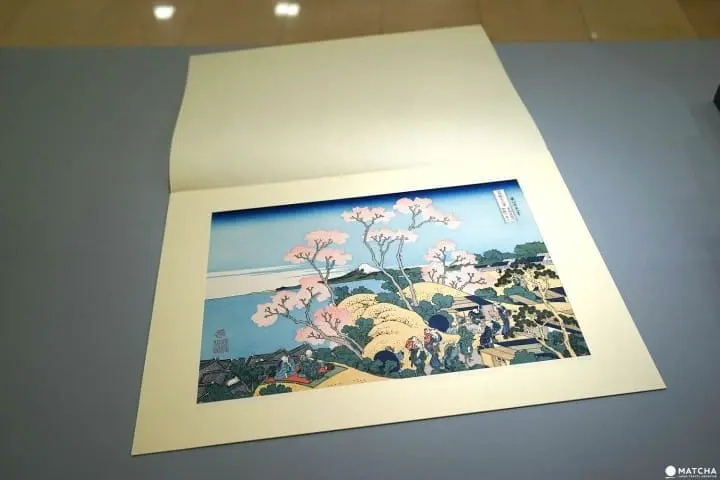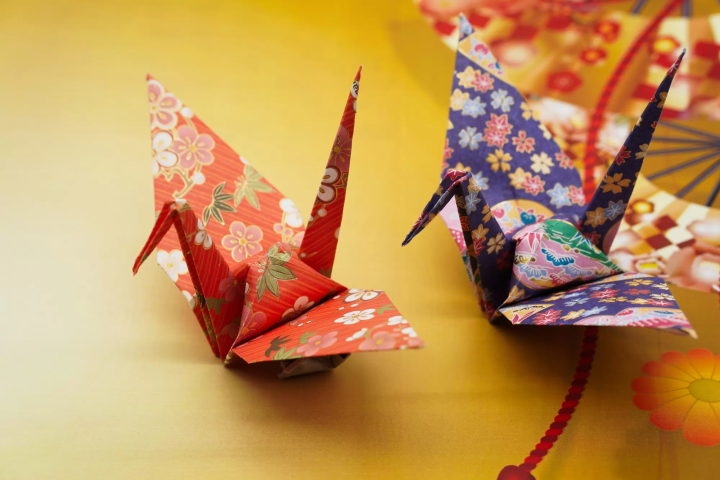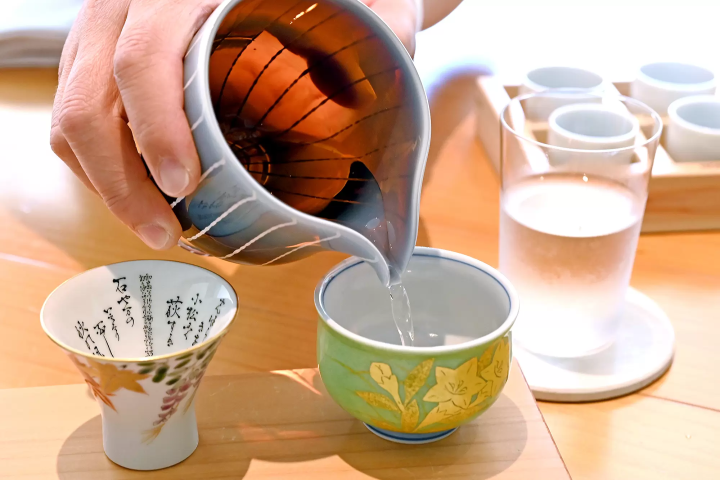Treat Yourself! 7 Funky And Useful Japanese Souvenirs

Buying souvenirs for your friends and family is one thing, but you ought to get yourself something nice to remember your trip to Japan by too. These 7 souvenirs make ideal, long-lasting purchases that you'll be able to enjoy for years to come.
Chopsticks, fans, matcha sweets, sake - those are some of the most popular souvenirs you can buy in stores around the country, but you might be looking for something truly unique to remember your journey to Japan by. These seven items are not only practical, but also unique to Japan, which make them ideal gifts for yourself or someone that shares your tastes.
Ukiyo-e Prints or Museum Collection Books

From: Ukiyo-e Exhibition: Cherry Blossoms And Mount Fuji In Woodcut Prints
Ukiyo-e are Japanese woodblock prints, often depicting landscapes, flowers, or figures from Japanese history and mythology. These brightly colored illustrations are ideal souvenirs because they are so personal; finding a piece of art that speaks to you during your time in Japan is sure to be a very memorable experience, isn't it?
Full size prints of historical ukiyo-e can be somewhat expensive, not to mention difficult to pack, but smaller versions or high quality digital prints run anywhere from 500-4500 yen per piece.

From: Authentic Japanese Souvenirs - 20 Recommended Items
You can also have your print framed in museum shops, for additional fees depending on the frame selected. Or, if you can't choose just one ukiyo-e, you can also purchase high-quality color print books in museum gift shops.
These books may feature the museum's permanent collection or a special exhibition of the season, and typically cost about 2500-6000 yen, depending on the length of the book and rarity of the works it contains.
Noren Curtains

From: Japanese Encyclopedia: Noren
Commonly seen outside of traditional Japanese restaurants, noren are a split curtain panel either printed with a design or brightly colored to attract the attention of passersby. Noren were the original "open for business" signs in Japanese shops, and nowadays are a popular item to have in your home as well.
They can be used as between room curtains, or even hung on walls as decorations too.
Noren can cost anywhere from a few hundred yen to around 4500 yen for the most highly decorated types, and are easily found in stores near major sightseeing areas like Asakusa in Tokyo and Kiyomizudera in Kyoto.
Bonsai Vessels and Tools

From: Complex But Simple Trees: The Green Art Of Bonsai
Bonsai are miniature trees that have been shaped and maintained through years of careful trimming and manipulation. They are one of the many traditional arts found in Japan, and one which can be enjoyed for years and even by generations within a family.
Although customs regulations may make it practically impossible to bring a live bonsai tree back to your home country, there is nothing to stop you from picking up the necessary containers, wires or trimming tools, plus books on how to care for different species, during your time in Japan. Pricing on these implements varies, but a good estimate to have in mind for a full set of tools and vessels without a tree or soil is around 5000-9000 yen.
There are many online sites, or even places in Japan where you can take a lesson on bonsai in person, not to mention events and displays held on the irregularly throughout the year.
Origami Accessories

From: Shibuya's Maruara Watanabe: The Ideal Place For Japanese Souvenirs!
Origami accessories include earrings, necklaces, hair clips, and even nail stickers. The most popular design is, of course, the crane, and you will find plenty of these delicately folded birds in a range of colors, prints and sizes no matter where you look in Japan.
The paper used to fold these accessories is waterproofed, so they are quite sturdy compared to plain paper options, although you can also find origami crane accessories made from gold plated metal, and even thin sheets of sterling silver as well. Prices for origami accessories vary based on material and size, but average around 1500 yen with tax in most stores.
Geta, Zori and Japanese Style Sandals

From: Geta and Zori - Japanese Encyclopedia
Generally speaking, geta are simple wooden sandals with a thick fabric band and either a flat or pronged base, while zori are slightly raised platform sandals, typically made from straw, leather, plastic, or vinyl and come in a wide variety of colors.
Geta can be worn with casual fashions, both Western and Japanese, while zori are much more formal and typically only worn with kimono or other traditional garb. Geta and zori typically cost anywhere from 1700-4000 yen for standard options, with handcrafted or designer sandals reaching upwards of 15,000 yen, while Japanese style sandals can cost as little as 100 yen and up to about 7000 yen, again depending on store and brand.

From: Shibuya's Maruara Watanabe: The Ideal Place For Japanese Souvenirs!
What makes these sandals such great souvenirs is their fit and durability. The straps of geta, zori and Japanese style sandals are designed to mold to the shape of your feet. While they might seem very tight when you try them on for the first time, with some basic care, you can break them in in no time flat.
Most modern geta available in souvenir shops have a thick rubber pad on their soles, which can easily be replaced when it gets worn down. Or, you can use them as house slippers, and have them last even longer.
Fundoshi

Men's fundoshi, from: Stylish And Hygienic: The Appeal Of Modern Day Fundoshi Underwear
Fundoshi are traditional Japanese underwear; essentially a folded strip of cloth wrapped around the body that can be tied in various ways depending on use or gender. According to wearers, they have plenty of health benefits and are quite comfortable compared to their Western counterparts, and are even said to increase in comfort with washing.
SHAREFUN® are a brand of modern day fundoshi that are readily available online and in select shops (costing around 2000-3000 yen, plus tax/delivery). Made entirely from domestic products and labor, they do not contain any elastics or unnatural fibers, which means they won't constrict your body or movements, and do not cause any chafing or rashes like some synthetic fabrics might.

Women's fundoshi, from: Stylish And Hygienic: The Appeal Of Modern Day Fundoshi Underwear
They come in a wide variety of colors and designs too, and are a fun, practical way to support different industries in Japan too.
Blue Jeans

From: Momotaro Jeans - Japanese Denim With A 10 Year Warranty
Okayama prefecture is well-known around fashion circles as producing some of the best raw denim available in the world, and those made by Momotaro Jeans are no exception. In fact, Momotaro jeans are already sold in 20 different countries, and are widely regarded as being the best large-scale denim producer in Japan. A pair of Momotaro Jeans bought in Japan starts at about 20,000 yen plus tax.

From: Momotaro Jeans - Japanese Denim With A 10 Year Warranty
Another thing that makes these jeans so special is the 10 year warranty. They will restitch any loose threads, repaint the designs and repair/replace any damaged buttons, zippers, etc for free if you send them in for repairs. At their shop in Aoyama, you can pick up your own pair of jeans and have them customized with their own special prints as well for an additional 2160 yen.
While this is the most expensive of the souvenirs on this list, having to only pay once for jeans that will last you for 10 years is well worth it, and being able to own a piece of Japanese fashion history is a pretty amazing deal too, in my opinion.
If you're looking for some practical, unique souvenirs to remember your trip to Japan by, these seven items are not only ideal, but long-lasting ways to decorate your home or yourself. Treat yourself to something special during your travels!
By the same author:
Delicious And Satisfying: 7 Must Try Comfort Foods In Japan!
In Spooky Japan - Scare Yourself And See Ghosts Around The Country!
10 Amazing, Little Known Spots Worth Visiting In Kyoto
Missed Your Last Train? How To Spend The Night Safely In The City
5 Must Have Stationery Items From Japan's Best Variety Goods Stores
Writer, translator, designer, weirdo.


































![[Shinjuku Nishiguchi HALC] About the d Point Campaign](https://resources.matcha-jp.com/resize/720x2000/2026/02/14-258714.webp)



